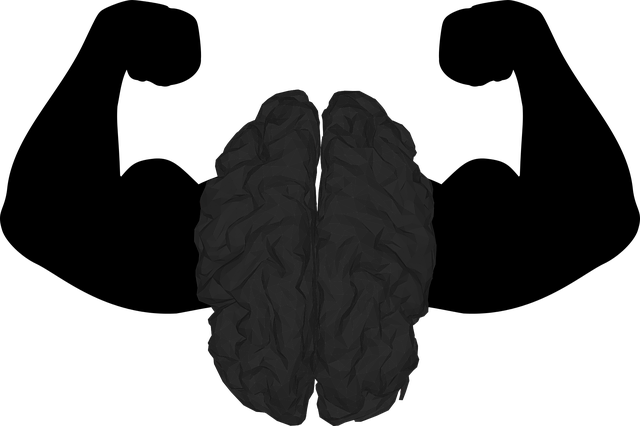Lone Tree German Speaking Therapy employs a rigorous process of mental health data collection and preparation, utilizing structured interviews, questionnaires, and observational notes. This raw data offers insights into emotional states, treatment progress, and risk factors, which are then cleaned, organized, and coded for meaningful interpretation. Advanced analytical techniques, including regression modeling and machine learning, help therapists identify key influencers on mental well-being. This data-driven approach enables personalized interventions like clustering based on shared traits, enhancing coping skills development and overall care quality through tailored strategies like Community Outreach Programs or Burnout Prevention.
Mental health data analysis has emerged as a powerful tool for understanding and improving therapeutic outcomes. In this article, we explore the critical components of mental health data analysis and interpretation, focusing on Lone Tree German Speaking Therapy. From understanding the collection and preparation of valuable data to employing advanced techniques for insights, we delve into strategies that inform tailored therapy approaches. By analyzing results effectively, therapists at Lone Tree can enhance patient care, ensuring a more nuanced and successful therapeutic journey.
- Understanding Mental Health Data: Collection and Preparation
- Analyzing the Data: Techniques and Tools for Insights
- Interpreting Results: Informing Therapy Strategies at Lone Tree German Speaking Therapy
Understanding Mental Health Data: Collection and Preparation

Understanding Mental Health Data involves a meticulous process of collection and preparation. Gathering data on mental health is a delicate matter, requiring specialized tools and trained professionals to ensure accuracy and privacy. At Lone Tree German Speaking Therapy, for instance, data collection methods might include structured clinical interviews, standardized questionnaires, and observational notes made by therapists during sessions. This raw data holds valuable insights into individuals’ emotional states, treatment progress, and potential risk factors.
Preparation of this data involves cleaning, organizing, and coding it to make it suitable for analysis. It includes translating free-text notes into structured formats, categorizing symptoms, and assigning diagnoses according to established criteria. This step is crucial, as it ensures that the data can be meaningfully interpreted, facilitating evidence-based practices and personalized treatment plans. By implementing effective collection and preparation strategies, such as those applicable in a Community Outreach Program Implementation or Burnout Prevention Strategies for Healthcare Providers, mental health professionals can better understand their clients’ needs, ultimately enhancing the overall quality of care.
Analyzing the Data: Techniques and Tools for Insights

Analyzing mental health data is a complex yet crucial process, offering valuable insights into individual and community well-being. Therapists at Lone Tree German Speaking Therapy employ various techniques to uncover patterns and trends within the data. These include statistical analysis methods like regression modeling, which helps identify factors contributing to specific mental health outcomes. By examining correlations between variables, therapists can better understand risk factors and protective elements, such as the impact of self-care practices on depression prevention.
Advanced tools like machine learning algorithms also play a significant role in data interpretation. These technologies enable automated identification of complex relationships within large datasets. For instance, clustering algorithms can segment individuals based on similar characteristics, facilitating personalized interventions. This approach ensures that coping skills development programs are tailored to specific needs, enhancing their effectiveness.
Interpreting Results: Informing Therapy Strategies at Lone Tree German Speaking Therapy

At Lone Tree German Speaking Therapy, interpreting the results of mental health data analysis is a pivotal step in tailoring therapy strategies to meet individual needs. By delving into the insights derived from comprehensive assessments, therapists can gain valuable knowledge about clients’ psychological states. This process involves identifying patterns, trends, and specific challenges that may be hindering emotional well-being. For instance, data might reveal heightened anxiety levels or signs of burnout, prompting therapists to design targeted interventions.
Informed by these findings, Lone Tree German Speaking Therapy employs empathy building strategies and burnout prevention techniques as core components of their therapeutic approach. Through empathetic communication, therapists foster a safe space for clients to express their experiences and emotions openly. Simultaneously, promoting emotional well-being becomes an integral part of the therapy process, helping individuals develop coping mechanisms and enhance resilience.
Mental health data analysis is a powerful tool that can significantly enhance therapeutic outcomes, particularly at institutions like Lone Tree German Speaking Therapy. By understanding and interpreting collected data effectively, therapists can tailor therapy strategies to meet individual needs, ensuring more precise and personalized care. Advanced techniques and tools, combined with thoughtful interpretation, enable professionals to navigate the complex landscape of mental health, ultimately fostering better patient outcomes.














